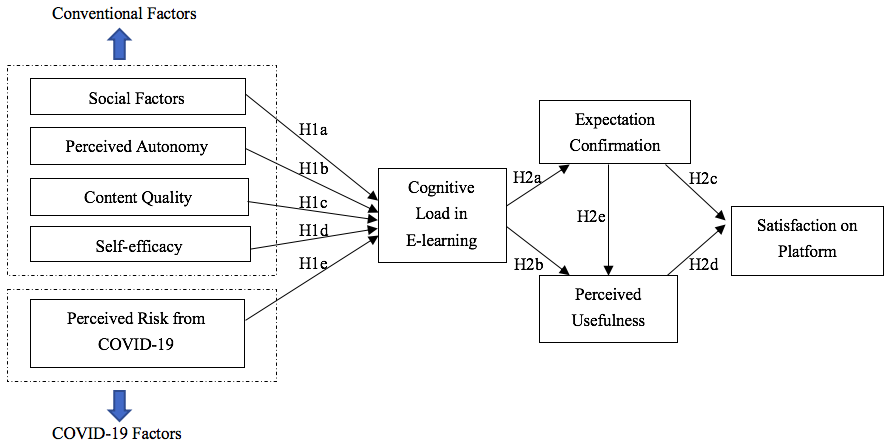Dr Alex Zarifis
Online learning is an extremely important part of education. By learning from the experience of COVID-19, we can have engaging and rewarding online learning, and avoid being disrupted by new natural disasters.
An individual’s ability to use their working memory to process information, and make decisions, is affected by the cognitive load they perceive. Cognitive load refers to the total amount of mental effort being used in the working memory.
Adopting the Cognitive Load Theory, this study mainly focuses on the antecedents of cognitive load generated by external factors. It explores the internal influence mechanism of cognitive load on user satisfaction, combined with the theory of expectation confirmation. At the same time, we also explore whether the level of cognitive ability will affect user satisfaction. Based on this research background, this study explores three research questions (Zuo et al. 2021).
(1) The first question explored is: In the context of a pandemic, what are the factors that affect cognitive load? We found that the influencing factors of cognitive load are very strongly related to the satisfaction with the platform. They can be divided firstly into typical factors that are important when using technology, and secondly specific factors that are caused by a pandemic. The typical factors that are important when using technology include social factors, perceived autonomy, content quality, and self-efficacy.

Figure 1. Online learner satisfaction model
(2) The second question explored is: How does cognitive load affect the satisfaction of online learning users, and what is its internal influence mechanism? We found that the antecedents of satisfaction which are emphasised by most of the learners interviewed, can be summed up in two constructs: One of the two is expectation confirmation which has more to do with the information system, and the other is perceived usefulness that is more related with what is being learned.
(3) The third and final question explored is: Will an individual with a different cognitive ability, perceive different levels of cognitive load, for the same online learning task? It appears that this is the case, but the cognitive load perceived by people with different educational levels may be a research gap that needs to be explored further.
The model of online learner satisfaction put forward here, can help optimize satisfaction, and help us be prepared to overcome challenges like pandemics.
Reference
Zuo Y., Cheng X., Bao Y. & Zarifis A. (2021) ‘Investigating user satisfaction of university online learning courses during the COVID-19 epidemic period’, Proceedings of the 54th Hawaii International Conference on System Sciences, pp.1139–1148. https://doi.org/10.24251/HICSS.2021.139